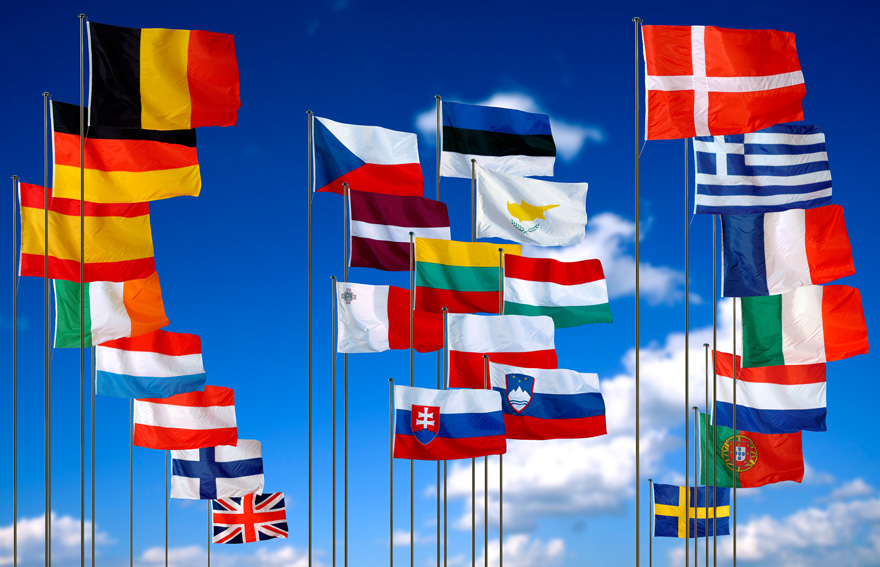On June 23rd, British voters will decide whether or not to stay in the EU. The United Kingdom’s withdrawal – nicknamed Brexit – was an unlikely prospect for a long time. But current polls suggest the leave and stay campaigns are neck-and-neck, with 40 per cent to remain, 41 per cent to leave and 19 per cent undecided. Numerous senior figures have joined the ranks of the leave campaign, including Justice Secretary Michael Gove, Work and Pensions Secretary Iain Duncan-Smith and popular London Mayor Boris Johnson. And as the referendum draws closer, the effect of a possible Brexit on Ireland is coming under scrutiny.
The implications of Brexit are complicated and, in many cases, unclear. From the surface it might look like Ireland would benefit from a Brexit scenario, in terms of corporate headquarters relocating here to maintain their presence in the Eurozone. But the impact would be far more complex than that. Northern Ireland Secretary Theresa Villiers has placed herself at odds with all the major Northern Ireland political parties, and by backing the Brexit campaign has imperilled the peace process, which has been in large part supported by the EU membership of both countries. Enda Kenny emphasised this at February’s EU renegotiations, voicing severe concern for the North: “The guns are silent. This has taken a great deal of work from so many people over so many years.”
But what kind of financial state would Ireland be in if its nearest neighbour is outside the EU pool?
It is clear that severing ties with Europe would sever Britain from Ireland too, as we will continue forward with EU policies and plans, and the UK will deviate on their own terms. But what kind of financial state would Ireland be in if its nearest neighbour is outside the EU pool? On Wednesday, AIB Chairman Richard Pym said that the Irish economy “faces a potential tragedy” if Brexit happens and warned that there would be a prolonged period of trade uncertainty: “There’s €1 billion of trade each week between Britain and Ireland, and during the period where the economies adjust to Britain being outside the EU that trade is at risk.” The uncertainty that a Brexit might promote would decrease investment, and European membership is evidently critical to political stability and economic development in Northern Ireland. Our fear of a UK exit was highlighted last year by a report from the Dáil’s joint committee on EU affairs, which voiced concern that the cross-border unions established under the Good Friday Agreement could be rescinded by a British vote to leave.
The arguments of the Brexit campaign have obvious appeal, and it is hardly surprising the polls are split evenly. But in many ways the campaigns of both sides are guilty of misplaced optimism. Britain faces a very uncertain trade future whatever happens, and given the migration crisis and serious economic problems within the Eurozone, the future of the union is obviously unclear. The ability of an independent Britain to forge its own trade partnerships could be limited. US trade representative Michael Froman warned that the US would not pursue a new free trade deal with Britain if it leaves and that Britain would face the same trade restrictions as China, Brazil or India in that case. Obama agreed that having the UK in the EU “is part of the cornerstone of the institutions built after the Second World War that has made the world safer and more prosperous”. These trade restrictions would have untold consequences for Ireland’s own economic future.
The consequences of a Brexit could, as last week’s Economist put it, “break up the United Kingdom itself”.
If it wants to maintain access to the EU’s single market after an exit, Britain would still have to adhere to restrictions that Eurosceptics want to escape. Governor of the Bank of England, Mark Carney, promised that his organisation would do whatever it takes to help Britain’s economy if it does decide to leave, writing in a letter to the Treasury Select Committee that “EU membership reinforces the dynamism of the UK economy” and that “the rest of the EU is more important to UK trade and investment than the converse.”
The consequences of a Brexit could, as last week’s Economist put it, “break up the United Kingdom itself”. This is an argument dismissed as scaremongering by many Eurosceptics, but First Minister Nicola Sturgeon has made it very clear that a Brexit against the wishes of Scotland would “almost certainly trigger an independence referendum”. Indeed one poll showed that 54 per cent of Scots would vote for independence in that regard. A Brexit with a “Scexit” would leave a very isolated England behind.
Johnson argued this week that Brexit would be much like a “Nike tick” – an initial decrease followed by sharp growth. In response, chief economist at the OECD, Catherine Mann, said the result would be much more harmful: “I don’t see a tick, I see an L-shape.” Time will tell if Brexit becomes a reality, but there is no doubting its significance or quite how far-reaching the consequences will be, both for Ireland and future afield.







